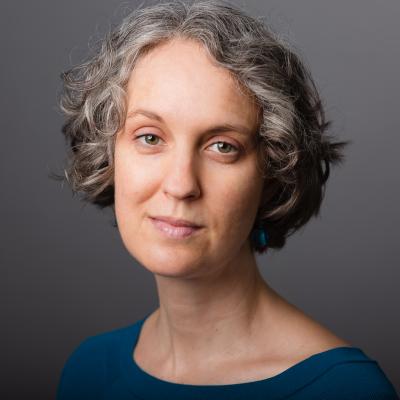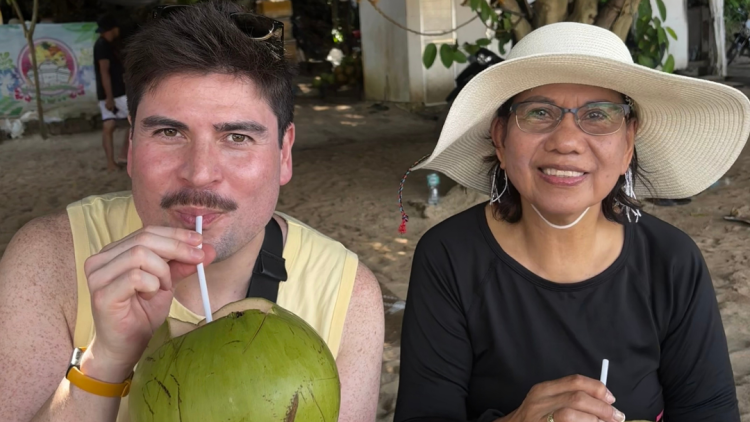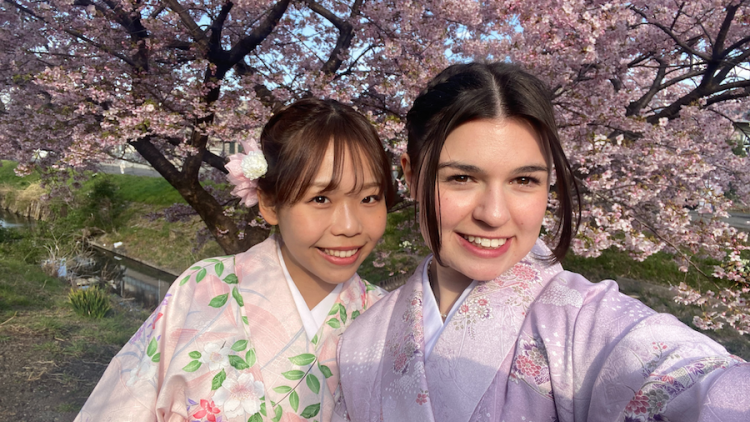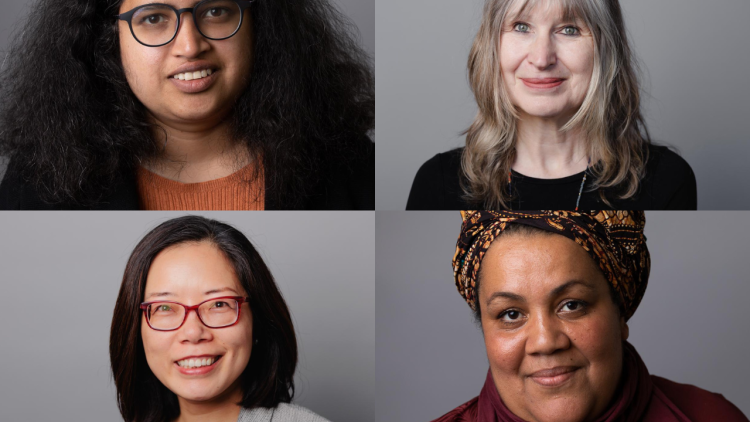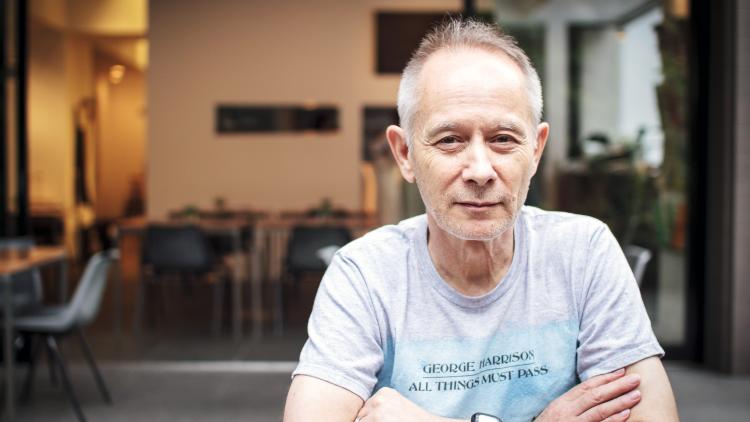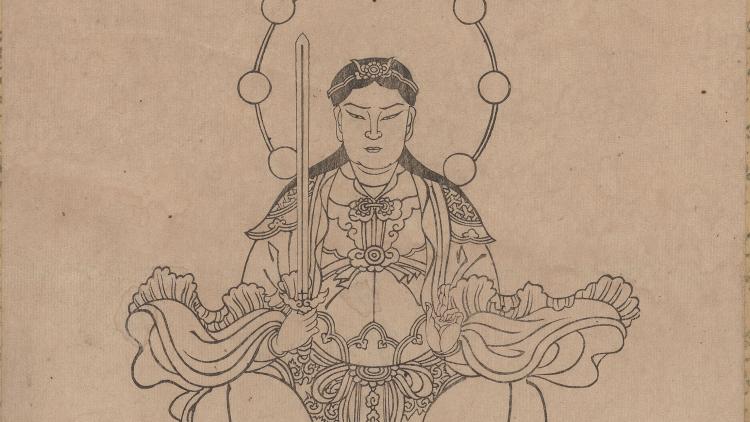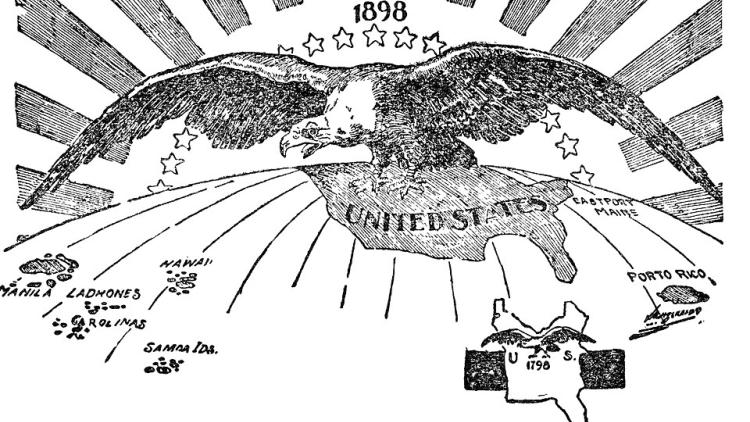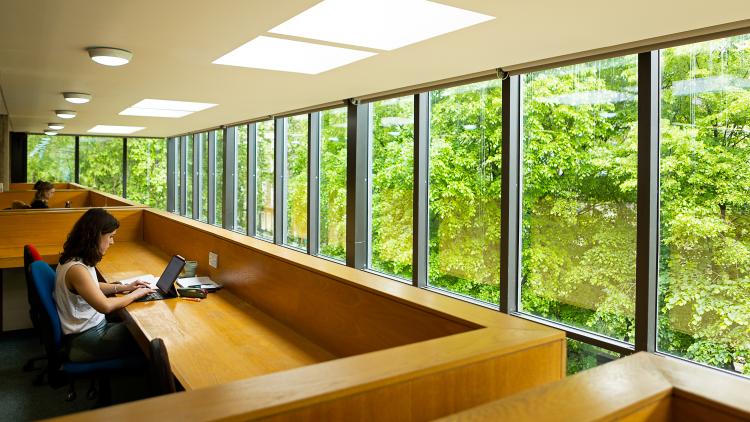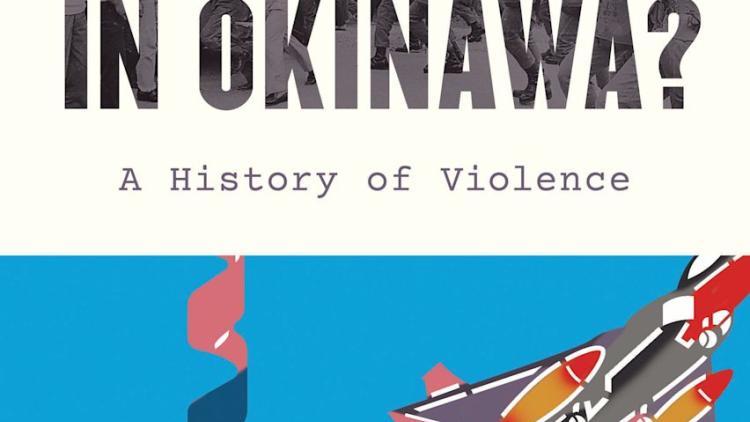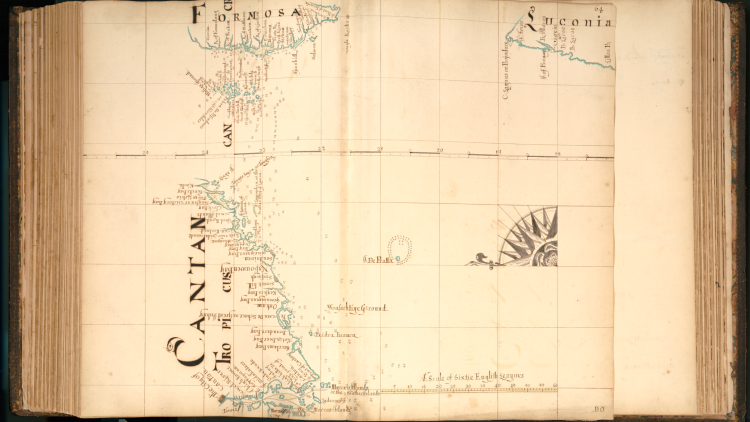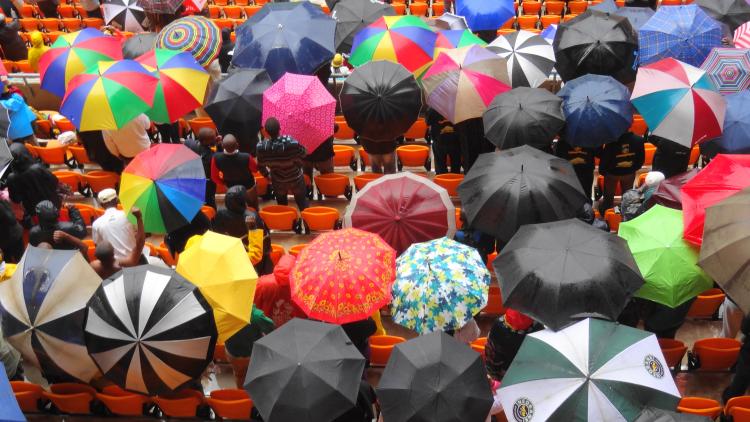MA African Studies
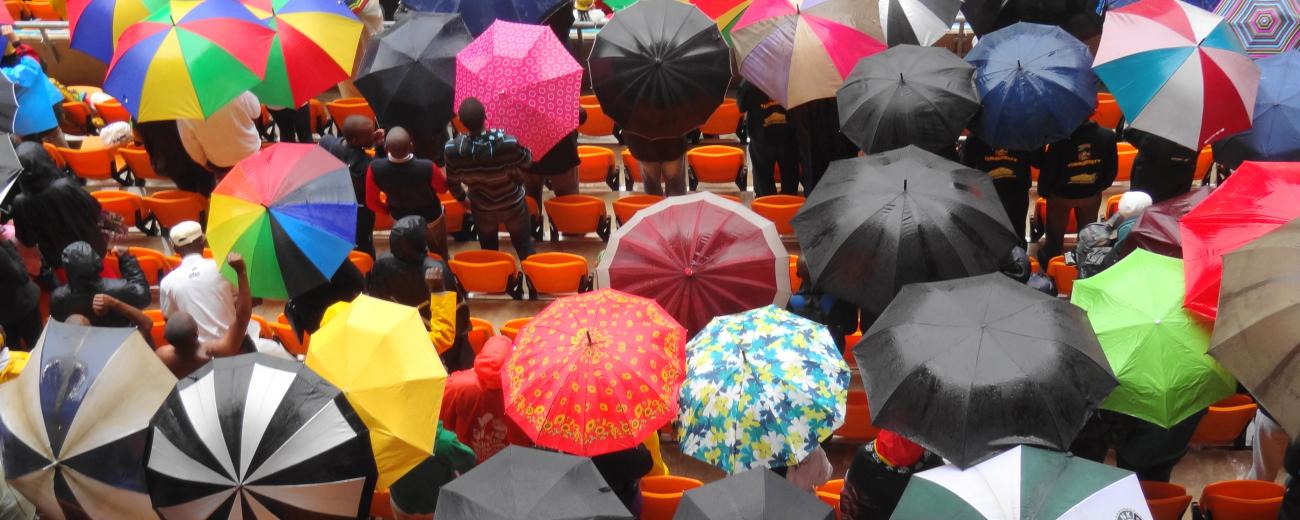


Key information
- Duration
- 1 year
- Start of programme
- September
- Attendance mode
- Full time or part time
- Location
- On Campus
- Fees
-
Home: £12,965
International: £25,320 - Course code
- PSO-AFRSTD1FD, PSO-AFRSTD2PD
- Entry requirements
-
We will consider all applications with a 2:2 (or international equivalent) or higher. In addition to degree classification we take into account other elements of the application such as your supporting statement. References are optional, but can help build a stronger application if you fall below the 2:2 requirement or have non-traditional qualifications.
-
Rwanda: Qualifications (Bachelor equivalency): Bachelor (4-year)
Equivalent to 2:ii: Lower Second Class Honours or 65-69% or 14/20
-
Saudi Arabia: Qualifications (Bachelor equivalency): Bachelor degree
Equivalent to 2:ii: GPA of 3.0/4.0 or 3.5/5.0 or overall 70%
-
Singapore: Qualifications (Bachelor equivalency): Bachelor degree
Equivalent to 2:ii: CAP 3.5/5.0 or 3.0/4.0
-
Slovakia: Qualifications (Bachelor equivalency): Bakalár / Bachelor
Equivalent to 2:ii: 70% or 2.0 overall or C
-
South Africa: Qualifications (Bachelor equivalency): Bachelor (4-year)
Equivalent to 2:ii: 60%
-
South Korea: Qualifications (Bachelor equivalency): Bachelor degree
Equivalent to 2:ii: GPA 2.7/4.0 or 3.0/4.3 or 3.3/4.5
-
Spain: Qualifications (Bachelor equivalency): Título de Grado / Título de Licenciado / Título de Ingeniero / Titulo de Arquitecto
Equivalent to 2:ii: 6.5/10 or GPA 1.75/4.0
-
Sri Lanka: Qualifications (Bachelor equivalency): Bachelor Special Degree or Professional Degree (4-year)
Equivalent to 2:ii: 55% or 2:2 or GPA 3.0/4.0
-
Sudan: Qualifications (Bachelor equivalency): Bachelor (5-year)
Equivalent to 2:ii: 65%+ or B
-
Sweden: Qualifications (Bachelor equivalency): Bachelor degree / Kandidatexamen / Yrkesexamen
Equivalent to 2:ii: B (90 credits) and C (90 credits) or Very Good (70 credits) and Good (110 Credits) or C (180 credits)
-
Switzerland: Qualifications (Bachelor equivalency): Diplom / Diplôme / Lizentiat / Staatsdiplom / Diplôme d’Etat
Equivalent to 2:ii: Overall 4.5/6 or 7/10 or 2.5/5
-
Syria: Qualifications (Bachelor equivalency): Licence / al-ijaza-fi / Bachelor
Equivalent to 2:ii: 70%+ or 'Good'
-
Taiwan: Qualifications (Bachelor equivalency): Bachelor degree
Equivalent to 2:ii: 68-70% or GPA 2.8/4.0-3.0/4.0
-
Thailand: Qualifications (Bachelor equivalency): Bachelor degree
Equivalent to 2:ii: GPA 3.0/4.0
-
Tunisia: Qualifications (Bachelor equivalency): Diplôme National d'Ingénieur / Diplôme National d'Architecture / Licence / Maîtrise
Equivalent to 2:ii: 12 out of 20
-
Turkey: Qualifications (Bachelor equivalency): Lisans Diplomasi
Equivalent to 2:ii: GPA 2.6/4 from the top universities and 3.0/4 from all others
-
Uganda: Qualifications (Bachelor equivalency): Bachelor degree
Equivalent to 2:ii: 2:2 (Lower Second) or B or GPA 3.0/5.0
-
Ukraine: Qualifications (Bachelor equivalency): Bachelor degree or Specialist Diploma
Equivalent to 2:ii: 8/12 or 3.8/5
-
United Arab Emirates: Qualifications (Bachelor equivalency): Bachelor degree
Equivalent to 2:ii: GPA 3.0/4.0 or 3.2/5.0
Information for prospective students from the United Arab Emirates
-
United States of America: Qualifications (Bachelor equivalency): Bachelor degree
Equivalent to 2:ii: GPA 3.0/4.0
-
Vietnam: Qualifications (Bachelor equivalency): Bachelor degree (4-year)
Equivalent to 2:ii: Overall score of 6.5/10
-
Yemen: Qualifications (Bachelor equivalency): Master's degree
Equivalent to 2:ii: Overall 'Good' (71-77%) or Aden University 80-83% (or 3.0/4.0)
-
Zambia: Qualifications (Bachelor equivalency): Master's degree
Equivalent to 2:ii: 65% or B or Credit or GPA 1.7/2.5 or 3.3/5.0
-
Zimbabwe: Qualifications (Bachelor equivalency): Bachelor degree
Equivalent to 2:ii: 2:2 or 65%
-
Afghanistan: Qualifications (Bachelor equivalency): Master's degree
Equivalent to 2:ii: 80% or 3.3/4.0
-
Argentina: Qualifications (Bachelor equivalency): Titulo / Grado de Licenciado
Equivalent to 2:ii: 7/10
-
Australia: Qualifications (Bachelor equivalency): Bachelor degree
Equivalent to 2:ii: 2:2 or Credit or 65%
-
Austria: Qualifications (Bachelor equivalency): Bachelor degree
Equivalent to 2:ii: 2.5/5.0 and overall Pass (Bestanden)
-
Bahrain: Qualifications (Bachelor equivalency): Bachelor degree
Equivalent to 2:ii: 75% or GPA 3.0/4.0
-
Bangladesh: Qualifications (Bachelor equivalency): Bachelor’s from Bangladesh University of Engineering and Technology or Master's degree
Equivalent to 2:ii: 60% or GPA 3.0/4.0
-
Belgium: Qualifications (Bachelor equivalency): Licentiaat or Licencié
Equivalent to 2:ii: 13/20 or 65%
-
Botswana: Qualifications (Bachelor equivalency): Bachelor degree (5-year) or Master's from University of Botswana
Equivalent to 2:ii: GPA 3.5/5.0 or 65% or B- or Good
-
Brazil: Qualifications (Bachelor equivalency): Título de Bacharel / Título de Licenciado (4-year)
Equivalent to 2:ii: 7/10 or 70%
-
Brunei: Qualifications (Bachelor equivalency): Bachelor degree
Equivalent to 2:ii: Lower Second Class Honours with 50% overall
-
Bulgaria: Qualifications (Bachelor equivalency): Bachelor degree
Equivalent to 2:ii: 4.3/6
-
Cameroon: Qualifications (Bachelor equivalency): Diplôme d'Ingénieur/ Diplôme d'Études Supérieures de Commerce (5-year)
Equivalent to 2:ii: 12-13 assez bien (fair); 70-74; or B+
-
Canada: Qualifications (Bachelor equivalency): Bachelor degree
Equivalent to 2:ii: GPA 3.0/4.0 or 74-77% or overall B
-
China Qualifications (Bachelor equivalency): Bachelor degree (4-year)
Equivalent to 2:ii:
73% or 2.6/4.0 (C9 unis)
75% or 2.8/4.0 (Double First unis)
80% or 3.25/4.0 (all other unis) -
Colombia: Qualifications (Bachelor equivalency): Licenciado / Titulo (4-year)
Equivalent to 2:ii: 3.5/5.0
-
Croatia: Qualifications (Bachelor equivalency): Baccalaureus / Baccalaurea (Bachelor degree)
Equivalent to 2:ii: Overall score 3/5
-
Cyprus: Qualifications (Bachelor equivalency): Bachelor degree
Equivalent to 2:ii: 6.5/10
-
Czech Republic: Qualifications (Bachelor equivalency): Bachelor degree (180 ECTS)
Equivalent to 2:ii: 1.75/4.0 or High C 'dobre’ (good)
Information for prospective students from the Czech Republic
-
Denmark: Qualifications (Bachelor equivalency): Bachelor degree
Equivalent to 2:ii: 7/12 or 8/13 or grade C
-
Egypt: Qualifications (Bachelor equivalency): Bachelor degree
Equivalent to 2:ii: 70% or 3.0/4.0
-
Estonia: Qualifications (Bachelor equivalency): Bakalaurusekraad / University Specialist's Diploma / Professional Higher Education Diploma
Equivalent to 2:ii: 4.0/5.0
-
Finland: Qualifications (Bachelor equivalency): Bachelor / Kandidaatti / Kandidat (180 ECTS credits)
Equivalent to 2:ii: 3/5 or 2/3
-
France: Qualifications (Bachelor equivalency): Licence or Diplôme from a grande école
Equivalent to 2:ii: 11.5 out 20
-
Gambia: Qualifications (Bachelor equivalency): Master's degree (2-year)
Equivalent to 2:ii: GPA 3.0/4.3 or 64% or B
-
Germany: Qualifications (Bachelor equivalency): Bachelor degree (180 ECTS)
Equivalent to 2:ii: 2.6/5
-
Ghana: Qualifications (Bachelor equivalency): Bachelor degree
Equivalent to 2:ii: 2:2 (Second Class Lower Division) or GPA 3.25/5.0 or 60%
-
Greece: Qualifications (Bachelor equivalency): Bachelor degree
Equivalent to 2:ii: 6.50/10
-
Hong Kong: Qualifications (Bachelor equivalency): Bachelor degree
Equivalent to 2:ii: Upper second class or GPA 2.7/4.0 or 75% or B Minus
-
Hungary: Qualifications (Bachelor equivalency): Bachelor (Alapfokozat) or Diploma (Egyetemi Oklevél)
Equivalent to 2:ii: 3.5/5.0
-
Iceland: Qualifications (Bachelor equivalency): Bachelor degree (Baccalaureus or Bakkalarprof)
Equivalent to 2:ii: 7.0 out of 10
-
India: Qualifications (Bachelor equivalency): Bachelor degree
Equivalent to 2:ii: CGPA: 55-60% or 5.5/10 - 6.0/10
-
Iraq: Qualifications (Bachelor equivalency): Bachelor degree (Licence/Karshani)
Equivalent to 2:ii: 0.7
-
Israel: Qualifications (Bachelor equivalency): Bachelor degree
Equivalent to 2:ii: 70% or C+
-
Italy: Qualifications (Bachelor equivalency): Laurea (180 ECTS)
Equivalent to 2:ii: 100/110
-
Japan: Qualifications (Bachelor equivalency): Bachelor degree
Equivalent to 2:ii: 70% or C+ or 3.0
-
Jordan: Qualifications (Bachelor equivalency): Bachelor degree
Equivalent to 2:ii: 3.0/4.0 or 70%
-
Kazakhstan: Qualifications (Bachelor equivalency): Bachelors (Bakalavr Diplomi) or Specialist Diploma
Equivalent to 2:ii: GPA 3.0/4.0 or GPA 4.0/5.0 or B
-
Kenya: Qualifications (Bachelor equivalency): Bachelor degree
Equivalent to 2:ii: 2:2 or 60%
-
Kuwait: Qualifications (Bachelor equivalency): Bachelor's degree from a recognised institution
Equivalent to 2:ii: GPA 2.67/4.0
-
Kyrgyzstan: Qualifications (Bachelor equivalency): Bachelor's degree or specialist diploma (min 4 years) from a recognised institution
Equivalent to 2:ii: 3.5/5.0 or 2.67/4.0
-
Latvia: Qualifications (Bachelor equivalency): Bakalaura Diploms (Bachelor's) or Profesionālā Bakalaura Diploms (Professional Bachelor's) from a recognised institution
Equivalent to 2:ii: 6/10
-
Lebanon: Qualifications (Bachelor equivalency): Bachelor's degree / Licence from a recognised institution
Equivalent to 2:ii: 70% or C or 2.7/4.0 or 12/20
-
Liberia: Qualifications (Bachelor equivalency): Master's degree from a recognised institution
Equivalent to 2:ii: 75% or 2.8/4.0
-
Libya: Qualifications (Bachelor equivalency): Bachelor's degree from selected institution
Equivalent to 2:ii: 65% or 2.8/4.0
-
Lithuania: Qualifications (Bachelor equivalency): Bachelors/Bakalauro (180 ECTS) from a recognised institution
Equivalent to 2:ii: 7/10
-
Luxembourg: Qualifications (Bachelor equivalency): Bachelor's degree from a recognised institution
Equivalent to 2:ii: 12/20
-
Macedonia: Qualifications (Bachelor equivalency): Bachelor's degree from a recognised institution
Equivalent to 2:ii: 7/10 or 2:2
-
Malawi: Qualifications (Bachelor equivalency): Master's degree from a recognised institution
Equivalent to 2:ii: 60% or 2.4/4.0
-
Malaysia: Qualifications (Bachelor equivalency): Bachelor's degree from a recognised institution
Equivalent to 2:ii: 2.6/4.0 or B- (Class 2 Division 2)
-
Maldives: Qualifications (Bachelor equivalency): Bachelor's degree from the Maldives National University (MNU)
Equivalent to 2:ii: 50%
-
Malta: Qualifications (Bachelor equivalency): Bachelor degree from a recognised institution
Equivalent to 2:ii: Lower Second Class / 60% / Category IIB
-
Mexico: Qualifications (Bachelor equivalency): Titulo de Licenciado from a recognised institution
Equivalent to 2:ii: 7.5/10
-
Morocco: Qualifications (Bachelor equivalency): Licence/Licence d'Etudes Fondamentales/Licence Professionnelle from a recognised institution
Equivalent to 2:ii: 11/20
-
Namibia: Qualifications (Bachelor equivalency): Bachelor's degree from a recognised institution
Equivalent to 2:ii: 60% or 2.5/4.0
-
Nepal: Qualifications (Bachelor equivalency): Master's degree / Bachelor's (4-year) from select institutions
Equivalent to 2:ii: 55% or 2.4/4.0
-
Netherlands: Qualifications (Bachelor equivalency): Bachelor's degree from a recognised institution
Equivalent to 2:ii: 6/10 or 2.7/4.0
-
New Zealand: Qualifications (Bachelor equivalency): Bachelor's degree (3 or 4 years) from a recognised institution
Equivalent to 2:ii: Lower Second Class Hons
-
Nigeria: Qualifications (Bachelor equivalency): Bachelor's degree from a recognised institution
Equivalent to 2:ii: Lower Second Class Hons
-
Norway: Qualifications (Bachelor equivalency): Bachelors/Bachelorgrad (180 ECTS) or Candidatus/a magisterii from a recognised institution
Equivalent to 2:ii: Overall C
-
Oman: Qualifications (Bachelor equivalency): Bachelor's degree from a recognised institution
Equivalent to 2:ii: 2.7/4.0
-
Pakistan: Qualifications (Bachelor equivalency): Bachelor's degree (4-year) from HEC recognised institution or 2 year BA + 2 year MA from HEC recognised institution
Equivalent to 2:ii: CGPA 2.7 or 55%
-
Palestine (State of): Qualifications (Bachelor equivalency): Bachelor degree (4-year) from a recognised institution
Equivalent to 2:ii: 75% or or 2.7/4.0
-
Papua New Guinea: Qualifications (Bachelor equivalency): Bachelor's (Honours) degree from a recognised institution
Equivalent to 2:ii: Class II Division B
-
Peru: Qualifications (Bachelor equivalency): Licenciado or Professional Title from a recognised institution
Equivalent to 2:ii: 12/20
-
Philippines: Qualifications (Bachelor equivalency): Master’s from recognised institution or Centre of Excellence; or Bachelor's from prestigious institution or Centre of Excellence.
Equivalent to 2:ii: 2.5/4.0 or 80% or 2.5/5.0 or Cum Laude
-
Poland: Qualifications (Bachelor equivalency): Licencjat or Inżynier from a recognised institution
Equivalent to 2:ii: 3.8/5.0
-
Portugal: Qualifications (Bachelor equivalency): Licenciado (180 ECTS) from a recognised institution
Equivalent to 2:ii: 12/20
-
Qatar: Qualifications (Bachelor equivalency): Bachelor's degree from a recognised institution
Equivalent to 2:ii: 2.7/4.0 or 3.3/5.0
-
Romania: Qualifications (Bachelor equivalency): Diplomă de Licenţă/Diplomă de Inginer/Diplomă de Urbanist Diplomat from a recognised university
Equivalent to 2:ii: 7/10
-
Russia: Qualifications (Bachelor equivalency): Diplom Bakalavra or Specialist Diploma from a recognised institution
Equivalent to 2:ii: 3.5/5.0
-
Rwanda: Qualifications (Bachelor equivalency): Bachelor's degree (4-year) from a recognised institution
Equivalent to 2:ii: Lower Second Class Hons; 60%; or 13/20
-
Saudi Arabia: Qualifications (Bachelor equivalency): Bachelor's degree from a recognised institution
Equivalent to 2:ii: 3.5/5.0 or 2.7/4.0 or 70%
-
Serbia and Montenegro: Qualifications (Bachelor equivalency): Bachelor's degree from a recognised institution
Equivalent to 2:ii: 7 / Good
-
Sierra Leone: Qualifications (Bachelor equivalency): Bachelor's Honours degree from a recognised institution
Equivalent to 2:ii: Lower Second Class Hons; 55%; 3.4/5.0; 2.75/4.0
-
Singapore: Qualifications (Bachelor equivalency): Bachelor's degree from a recognised institution
Equivalent to 2:ii: 3.3/5.0 or 2.8/4.0
-
Slovakia: Qualifications (Bachelor equivalency): Bachelor's degree (Bakalár) from a recognised institution
Equivalent to 2:ii: 70%; or 2.0 overall; or C
-
Slovenia: Qualifications (Bachelor equivalency): Diploma o pridobljeni univerzitetni izobrazbi (University Degree) or Diploma o pridobljeni visoki strokovni izobrazbi / Diplomirani (Diploma of Professional Higher Education) or Diplomant or Univerzitetni diplomant (first degree)
Equivalent to 2:ii: 7 out of 10
-
Solomon Islands: Qualifications (Bachelor equivalency): Bachelor's degree (4-year) from the University of the South Pacific
Equivalent to 2:ii: B/3.0
-
Somalia: Qualifications (Bachelor equivalency): Do not accept national qualifications for direct entry
Equivalent to 2:ii: N/A
-
South Africa: Qualifications (Bachelor equivalency): Bachelor's degree (4-year) from a recognised institution
Equivalent to 2:ii: 60%
-
South Korea: Qualifications (Bachelor equivalency): Bachelor's degree from a recognised institution
Equivalent to 2:ii: GPA 2.5/4.0; or 2.8/4.3; or 3.0/4.5
-
Spain: Qualifications (Bachelor equivalency): Título de Grado / Título de Licenciado / Título de Ingeniero / Titulo de Arquitecto from a recognised institution
Equivalent to 2:ii: 6/10 or 1.5/4.0
-
Sri Lanka: Qualifications (Bachelor equivalency): Bachelor Special Degree or Professional Degree (4-year) from a recognised institution
Equivalent to 2:ii: 55% or 2:2 or 3.0/4.0
-
Saint Kitts and Nevis: Qualifications (Bachelor equivalency): Bachelor's degree from the University of the West Indies
Equivalent to 2:ii: 2.7/4, B-, 60% or Lower Second Class Hons
-
Saint Vincent and the Grenadines: Qualifications (Bachelor equivalency): Bachelor's degree from the University of the West Indies
Equivalent to 2:ii: 2.7/4, B-, 60% or Lower Second Class Hons
-
Sudan: Qualifications (Bachelor equivalency): Bachelor's degree (5-year) from a recognised institution
Equivalent to 2:ii: 60% or B
-
Sweden: Qualifications (Bachelor equivalency): Bachelor's Degree/Kandidatexamen/Yrkesexamen from a recognised institution
Equivalent to 2:ii: Pass OR Godkänd (with a minimum of 90 credits at Good - C)
-
Switzerland: Qualifications (Bachelor equivalency): Diplom/Diplôme;Lizentiat;Staatsdiplom/Diplôme d’Etat from a recognised institution
Equivalent to 2:ii: 4/6; or 6/10: or 3/5
-
Syria: Qualifications (Bachelor equivalency): Bachelor's degree (Licence/ al-ijaza-fi) from a recognised institution
Equivalent to 2:ii: 65%+ or 'Good' from a public university
-
Taiwan: Qualifications (Bachelor equivalency): Bachelor's degree from a recognised institution
Equivalent to 2:ii: 65-70% or GPA 2.6/4.0 - 2.8/4.0
-
Tanzania: Qualifications (Bachelor equivalency): Bachelor's degree from a recognised institution
Equivalent to 2:ii: 2:2; or Lower Second; or GPA 2.7/5.0
-
Thailand: Qualifications (Bachelor equivalency): Bachelor's degree from a recognised institution
Equivalent to 2:ii: 2.6/4.0
-
Trinidad and Tobago: Qualifications (Bachelor equivalency): Bachelor's Degree from UWI
Equivalent to 2:ii: B-, 60% or 2.5; or Lower Second Class Hons
-
Trinidad and Tobago: Qualifications (Bachelor equivalency): Diplôme National d'Ingénieur/ Diplôme National d'Architecture/ Docteur en Médecine / Vétérinaire/ Licence/ Maîtrise from recognised institution
Equivalent to 2:ii: 11 out of 20
-
Turkey: Qualifications (Bachelor equivalency): Lisans Diplomasi from a recognised institution
Equivalent to 2:ii: Top Unis: 2.5/4.0 All others: 2.8/4.0
-
UAE: Qualifications (Bachelor equivalency): Bachelor's degree from a recognised institution
Equivalent to 2:ii: GPA 2.6/4.0 or 75% or C+
-
Uganda: Qualifications (Bachelor equivalency): Bachelor's degree from a recognised institution
Equivalent to 2:ii: 2:2 (Lower Second) or 3.0/5.0 or B
-
Ukraine: Qualifications (Bachelor equivalency): Bachelor's degree or specialist diploma from a recognised institution
Equivalent to 2:ii: 7 out of 12; or 3.5 out of 5
-
USA: Qualifications (Bachelor equivalency): Bachelor's degree from a recognised institution
Equivalent to 2:ii: GPA 2.7/4.0
-
Vietnam: Qualifications (Bachelor equivalency): Bachelor's degree (4-year) from a recognised institution
Equivalent to 2:ii: 6.0/10 or 2.5/4.0
-
Yemen: Qualifications (Bachelor equivalency): Master's degree from a recognised institution
Equivalent to 2:ii: 70% or 2.7/4.0
-
Zambia: Qualifications (Bachelor equivalency): Master's degree from a recognised institution
Equivalent to 2:ii: 65%; B; Credit; 1.7/2.5; or 2.7/4.0; or 3.3/5.0
-
Zimbabwe: Qualifications (Bachelor equivalency): Bachelor's degree (3 or 4 years) from a recognised institution
Equivalent to 2:ii: 2:2 (60%)
-
See international entry requirements and English language requirements for further information.
Course overview
The MA African Studies at SOAS provides an unrivalled programme of advanced modules on Africa - one of the world’s most fascinating and challenging regions.
The opportunity for interdisciplinary study of the continent is a particular advantage of the degree. Our former students have chosen to study Africa at this level for a wide range of reasons. For some a deep interest in the history and culture or political economy of a particular region is sufficient motivation, but for many students the programme has, in addition, been followed with the intention of furthering their career opportunities.
Some go on to work either in Africa or in fields related to Africa. The opportunity to combine study of particular African subjects with an African language is very useful, although some evidence of competence in learning a foreign language is usually required.
Why study MA African Studies at SOAS?
- SOAS is ranked 7th in the UK for African and Middle Eastern Studies (Complete University Guide 2026)
- We are ranked 13th in the UK for Modern Languages (QS World University Rankings 2025)
- We are ranked 2nd in the UK for 'graduate prospects' (Complete University Guide 2026)
- Modern Languages and Linguistics at SOAS has been ranked 10th in the UK in the Research Excellence Framework (REF) 2021
- 4th for research environment - with 100% of our research ranked as 'internationally excellent' and 85% as 'world-leading' - and 8th for research outputs in the REF 2021
Study Tours
All postgraduate students can take part in our Study Tours and explore the world. This year’s destinations are New Delhi, Lahore, Seoul, Luang Prabang, Almaty, Bishkek, Kigali, Johannesburg, and Doha. For more information, see our Study Tours page.
Structure
Students take 180 credits in total:
- 60 credit dissertation
- 120 credits of taught modules
All students take the compulsory modules listed below ('Approaches to African Studies' and 'Remapping Area Studies') and select 120 credits from lists A, list B and list C.
Important notice
The information on the website reflects the intended programme structure against the given academic session. The modules are indicative options of the content students can expect and are/have been previously taught as part of these programmes.
However, this information is published a long time in advance of enrolment and module content and availability is subject to change.
Core
Compulsory
Guided options List A
15-60 credits from List A
Guided options List B
15-60 credits from List B
Guided options List C
Up to 60 credits from List C. Students are strongly encourage to select a language module as part of the programme.
Teaching and learning
One-year Masters programmes consist of 180 credits. 120 credits are taught in modules of 30 credits (taught over 20 weeks) or 15 credits (taught over 10 weeks); the dissertation makes up the remaining 60 units. The programme structure shows which modules are compulsory and which optional.
Contact hours
As a rough guide, 1 credit equals approximately 10 hours of work. Most of this will be independent study, including reading and research, preparing coursework and revising for examinations. It will also include class time, which may include lectures, seminars and other classes. Some subjects, such as learning a language, have more class time than others. At SOAS, most postgraduate modules have a one hour lecture and a one hour seminar every week, but this does vary.
Learn a language as part of this programme
Degree programmes at SOAS - including this one - can include language courses in more than forty African and Asian languages. It is SOAS students’ command of an African or Asian language which sets SOAS apart from other universities.
Learning outcomes
Knowledge
- Students will acquire knowledge and critical awareness of current issues and/or insights into Africa from the perspective of at least two social sciences and/or humanities disciplines.
- The student will have the opportunity of gaining knowledge or further knowledge of an African language.
- The student will gain specialized and in - depth knowledge in one particular area of the study of Africa and from disciplinary perspective
Intellectual (thinking) skills
- Students will develop a critical and analytical approach to issues relating to Africa in the disciplinary areas chosen.
- Students will develop skills of synthesizing materials from a variety of sources and presenting these in writing and orally in an academic context.
- Students will have the opportunity of researching topics which have been little commented on in the secondary literature and thus develop research skills by working on primary sources.
Subject-based practical skills
- Students will gain specific knowledge of aspects of African life, which will prepare them for working in Africa.
- The specialist knowledge developed in the individual courses will allow students to add an academically grounded perspective to their particular subsequent work context.
- If a student takes an African language they will have a strong practical skill, which will help them in any context where the language is used and which will also be of benefit if they need to learn another language in the future.
Transferable skills
- Through managing their studies students will develop the exercise of initiative and personal responsibility.
- In researching and writing coursework and the dissertation students will develop research and writing skills.
- Students will develop the skills of independent learning required for continuing onto a research degree or for professional development.
Learning resources
- Useful resources from the African Languages, Cultures and Literatures section
- SOAS Library is one of the world's most important academic libraries for the study of Africa, Asia and the Middle East, attracting scholars from all over the world. The Library houses over 1.2 million volumes, together with significant archival holdings, special collections and a growing network of electronic resources.
Scholarships
| Title | Deadline date |
|---|---|
| Tibawi Trust Award | |
| Felix Non-Indian Scholarship | |
| Felix Scholarships |
Employment
A postgraduate degree in African studies from SOAS provides you with competency in language skills and intercultural awareness and understanding. Familiarity with the region will have been developed through a combination of the study of language, literature, history, cinema, politics, economics or law.
Recent graduates have gone on to work for a range of organisations including:
- BBC News
- British Embassy
- Canon Collins Educational Trust for Southern Africa
- Goal Nigeria
- Government of Canada
- Hogan Lovells International LLP
- International Institute for Environment and Development
- Kenyan Government
- Mercy Corps
- Migrant Resource Centre
- Mo Ibrahim Foundation
- The London MENA Film Festival
- The University of Tokyo
- The World Bank
- Think Africa Press
- U.S. Embassy
- United Nations
- University of Namibia
- World Vision UK
- Zanabazar Museum of Fine Arts
Find out about our Careers Service.

